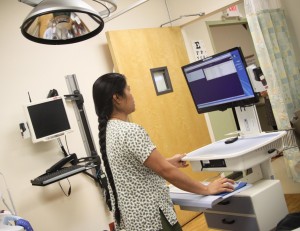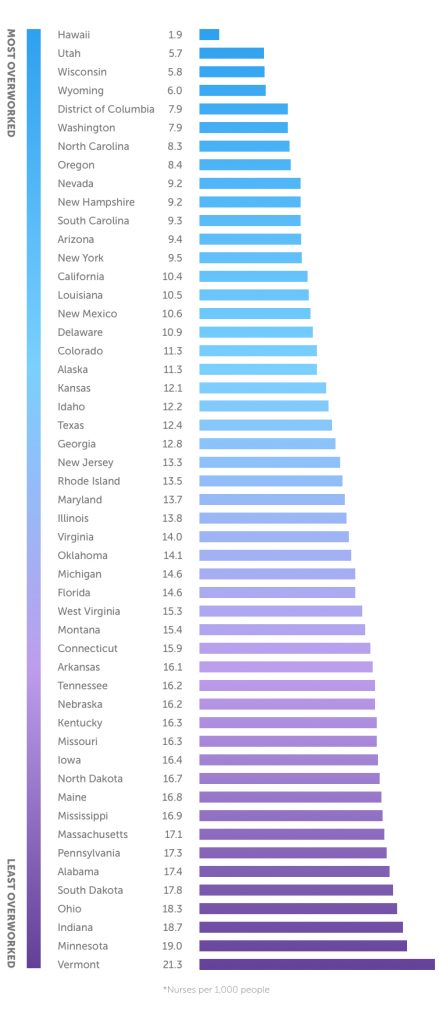Study: Hawai‘i Ranks No. 1 for Overworked Nurses

Elvie Bagay, a registered nurse at Kohala Hospital, checks patient data using the Electronic Medical Record System. Courtesy photo.
Hawai‘i ranks first in the nation for the state with the most overworked nurses, according to a new report compiled by Medicare Health Plans.
Despite being ranked among the best states to live in for well-being, Hawai‘iʻs 2,721 nurses must cover a population of 1,431,603 citizens living in the state. That averages to only 1.9 nurses for every 1,000 people in Hawai‘i.
Overworked nurses become prone to burn out, job dissatisfaction and errors which can impact the quality of care provided in hospitals, according to a study cited in the report.
In comparison, the report shows care coverage by physicians fairs better in Hawai‘i compared with other states. Hawai‘i ranks number 15 for the number of physicians per capita, averaging to 2.4 physicians for every 1,000 people. That falls slightly below the national average cited in the report of 2.8 physicians for every 1,000 people. Nationwide, there are a total of 923,308 primary care and specialist physicians to cover the 324,956,001 people throughout the U.S. as of April 30, 2017.
 The country has many more nurses—4,148,730 registered nurses (RNs) and licensed practical nurses (LPNs) averaging to 12.8 nurses per 1,000 people.
The country has many more nurses—4,148,730 registered nurses (RNs) and licensed practical nurses (LPNs) averaging to 12.8 nurses per 1,000 people.
Medicare Health Plans advises people in Hawai‘i—and other states with burdened healthcare workers—to follow these tips to ensure quality care:
- Choose a primary care doctor or specialist with care: consider your health or your familyʻs health needs, and do some research to find the right physician who can meet them;
- Get referrals: get recommendations from doctors, but also family, friends and neighbors.
- Be accountable for your own care: the type of health care coverage and treatment options you choose are you up to you. Consider your own experience and knowledge of your body when making decisions. If you feel uneasy about the care you receive from a doctor or nurse, speak up.
Report analysts compiled data from the U.S. Census Bureau, FBI and the Kaiser Family Foundation to compare doctor and nurse counts against population numbers for each state.















